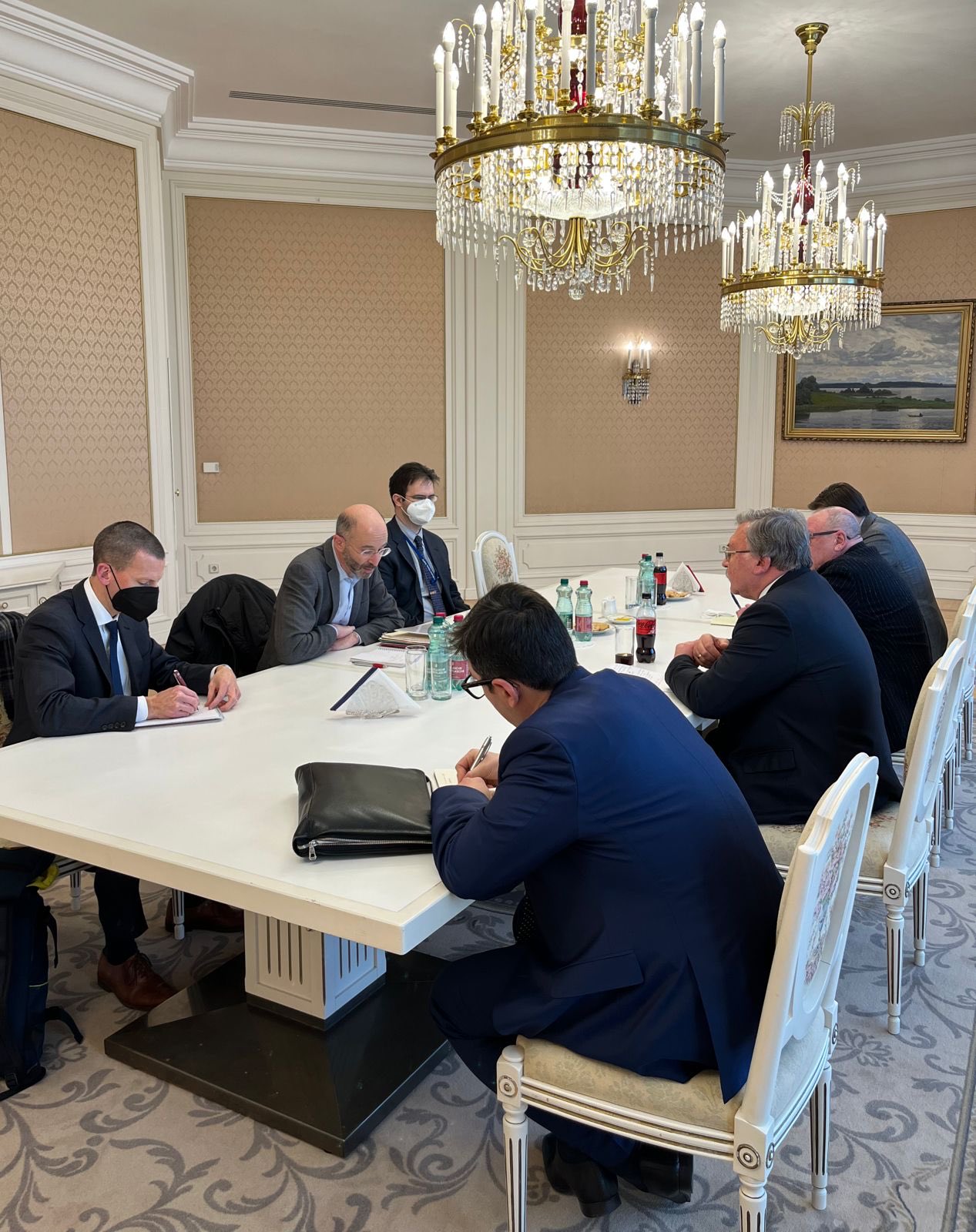Negotiations toward a restoration of the nuclear deal with Iran, known as the Joint Comprehensive Plan of Action (JCPOA), continue in Vienna, Austria this week. It remains unclear whether an agreement can be finalized before the Biden administration’s floating deadline for an agreement, which could come as soon as the end of January.
A restoration of the JCPOA would ensure the rollback of Iran’s nuclear program and an easing of sanctions that have crushed ordinary Iranians. Failure would solidify the failed Trump maximum pressure sanctions that have harmed the Iranian people and escalated the nuclear stand-off, which could close diplomatic off-ramps and pave the path to war.
Are there reasons for optimism?
- U.S., European, Russian and Iranian observers have all hinted at modest progress throughout the eighth round, with the sequencing working group recently convening to discuss which concessions come when.
- A U.S. negotiator described recent work as a “tedious slog,” involving translating areas of agreement in principle into words on paper. “A lot” of the text on sanctions lifting and nuclear issues has been cleared, though difficult issues remain, including on sequencing.
- Conservative Iranian officials have also begun to signal support for the negotiations, possibly indicating a clearing of the political path for a deal. This includes the Supreme Leader, media affiliated with the Supreme National Security Council and Tehran’s Friday Prayer leader.
- However, U.S. officials have repeatedly stated that progress at the diplomatic table has not kept pace with Iran’s nuclear expansion. As stated, they indicate that prospects for JCPOA revival will be dashed without more rapid progress.
Why are the negotiations so difficult?
- Most obvious is the profound distrust engendered by the U.S. withdrawal in 2018, which had little consequences for the U.S. and immense ones for Iran. Iran seeks guarantees that the U.S. will not withdraw again, which Biden may not be able to give, or at minimum concessions to resolve sanctions relief complications that occurred in 2016.
- The 2015 nuclear negotiations also occurred amid direct negotiations between U.S. and Iranian officials, with Secretary of State Kerry, Energy Secretary Moniz, Iranian Foreign Minister Zarif and Atomic Energy Organization chief Salehi all working to clear thorny issues. Negotiations under Biden have all taken place indirectly at Iran’s insistence.
- Iran has also significantly expanded its nuclear program, including by installing new models of advanced centrifuges amid negotiations, which presents new challenges for ensuring Iran’s return to compliance.
What are some of the benefits of a JCPOA return?
- The core nonproliferation benefits of a JCPOA revival aren’t diminishing, and would be immediate. These include:
- Reducing Iran’s enriched uranium stockpile of more than 2,300 kg, as of November 2021, to the limit of 300 kg;
- Capping uranium enrichment at 3.67% and eliminating or downblending Iran’s stockpiles of uranium enriched to the 5%, 20% and 60% thresholds;
- Halting uranium enrichment at the deeply-buried Fordow facility;
- Restoring full IAEA access via implementation of the Additional Protocol;
- While the Biden administration has claimed that the clock is ticking on the JCPOA, none of the above benefits have eroded or will disappear anytime soon.
- A restoration of the JCPOA would go a long way toward easing economic pressures on the Iranian people, who have been suffering under state repression, crushing sanctions and a deadly pandemic. As Christian Science Monitor reported, “inflation, poverty, a sense of hopelessness, and suicide rates are all on the rise…official statistics show that the ranks of those in ‘absolute poverty’ have doubled in the past three years to include 30 million Iranians – more than one-third of the population.”
What is the best alternative to a JCPOA return?
- There are effectively three options for the Biden administration:
- A full restoration of the JCPOA, which is the best option on the table;
- A separate nuclear agreement, which could be difficult to negotiate and would likely be more temporary; and
- A doubling down on max pressure, which has led to nuclear expansion and brought the U.S. and Iran to the brink of war twice under Trump.
- A separate agreement would be far preferable to an alternative no-deal scenario, where the Biden administration could soon be faced with Iran on the threshold of nuclear weapons and increasing calls for military action.
- Doubling down on sanctions would be a failed strategy that only increases the Iranian people’s suffering while escalating the nuclear stand-off. Likewise, war cannot erase Iran’s nuclear know-how and would only incentivize an Iranian drive for a nuclear deterrent. It would assuredly result in a major regional war, with missile attacks on U.S. and regional partners, likely including Israel.
- Diplomacy, coupled with sincere offers of sanctions relief, is the only path that has altered Iran’s incentives and resulted in a roll-back of Iran’s nuclear program. The Biden administration must continue to pursue the negotiations to reverse the damage caused by Trump’s withdrawal.
Featured photo tweeted by Russian Amb. Mikhail Ulyanov.
Back to top